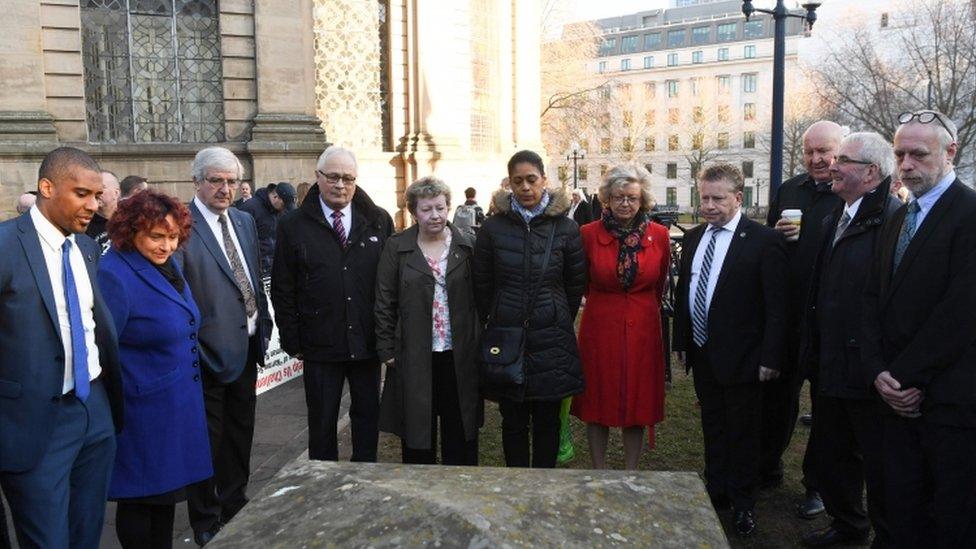Birmingham pub bombings: 'No cordon' despite warning
- Published
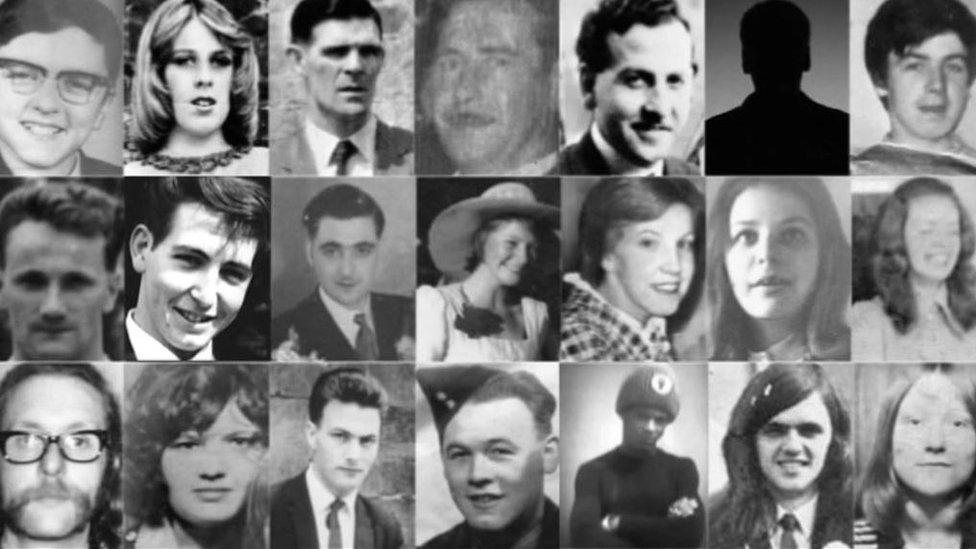
Twenty-one people died when two bombs were detonated in Birmingham in 1974
No cordon was put around a Birmingham pub before it was bombed in 1974, despite officers responding to a coded warning, an inquest heard.
Some 21 people died and 220 were injured in blasts between 20:15 and 20:20 at the Mulberry Bush and Tavern in the Town on 21 November.
Jurors heard there was no evidence of attempts to clear the Mulberry Bush, despite a call at 20:11 pinpointing the Rotunda, where it was located.
New inquests into the deaths continue.
Jurors have heard the Irish Republican Army (IRA) admitted a series of attacks before the pub bombings, although no-one has ever claimed responsibility for the "two vast explosions" in Birmingham.
On Friday, at Birmingham Civil Justice Centre, it also emerged that some of the police logs detailing the immediate responses on the night were still missing.
Friends walking past
Earlier this week, jurors heard there were just 15 police officers covering Birmingham city centre as other officers had been diverted to cover funeral transport for IRA bomber James McDade.
The inquests were told that friends Neil Marsh, 16, known as Tommy, and 17-year-old Paul Davies, had been walking past the Mulberry Bush when the device detonated.
Anthony Mole, an ex-counter terrorism police commander, giving expert evidence, was asked by Leslie Thomas QC, on behalf of Paul's family, if police had visited the Rotunda between the warning and the time when the bomb went off.
Mr Mole said that was correct and confirmed that, despite the visit, no cordon was put in place around the building.
Asked whether there were any police logs other than two 999 calls for the Tavern and the Mulberry Bush, Mr Mole said he had not seen any, other than "statements from police officers at the time".
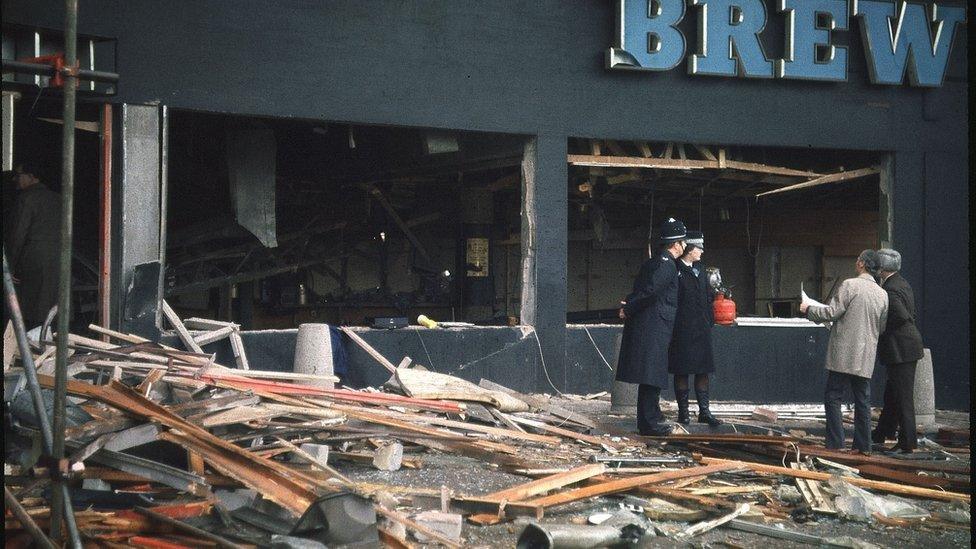
Ten people died in the first blast at the Mulberry Bush, below the Rotunda building
Jurors also heard an account from the now deceased wife of the pub's landlord, Mary Jones.
In it, she said: "I didn't realise what had happened at first and thought I had been electrocuted.
"I must have crawled over some bodies to get out of the pub, but I don't remember this at all."
Solicitor David McVeighty, now 70, was having a post-work drink in the pub with his brother Raymond and three friends.
He described a "bright flash" and "a very loud bang" which blew out every window in the pub.
Went back
Mr McVeighty grabbed his brother by the arm, got out through a window, and they ran.
But the pair went back to the pub after a few moments to check on their friends - who were, by then, stood outside.
He said: "I remember bodies. I remember the smell of burning and I remember screams and moans.
"I think I tried to pull some people or help and by then the emergency services were on the scene and a fireman told me to leave."
He told jurors: "My recollections are vivid, as you can gather, and I count myself, unlike the other unfortunate people who are the subject of this inquests, as a very lucky and fortunate man."
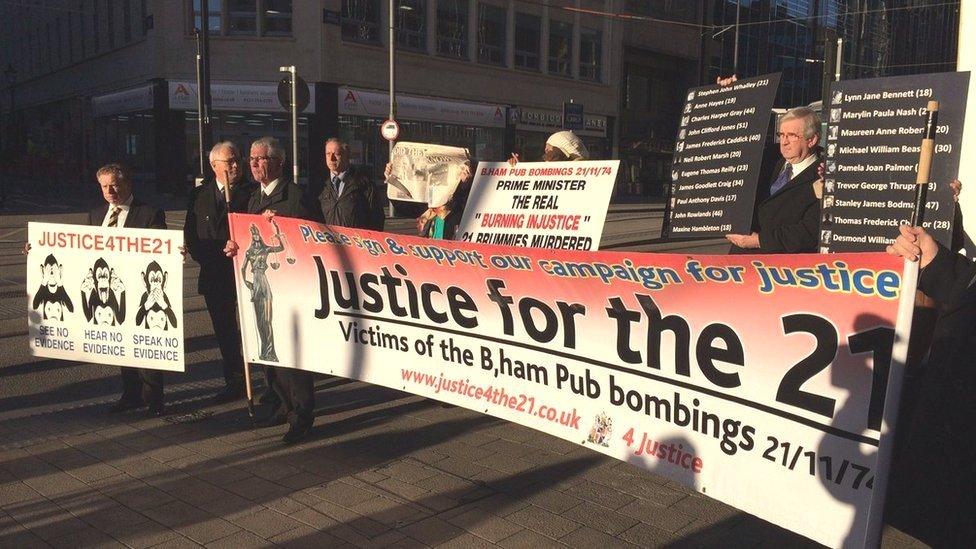
The families of the victims have fought for years to have inquests reopened
Another survivor told of how "all" wristwatches worn by those present had stopped at the same time.
Paul Murphy was left with 33% burns after a 30lb (15kg) bomb went off just feet away from where he was drinking inside the basement Tavern In The Town pub.
Then 17, he likened the experience of being blown across the pub to "somebody clamping electrodes on your back".
He described seeing rescue workers "in yellow jackets" amid the rubble, and told how his friend helped to get him out.
'Women screaming'
Once he got to street level, Mr Murphy said there were "people everywhere", and he was moved to a nearby hotel to await transport to hospital.
He said: "A couple of women were screaming, a fella was waiting.
"The blast had blown most of your clothes off, no hair, no eyebrows, your private parts are covered, because you're wearing three layers.
"Your socks were blown off to the level of your shoes.
"You've lost that much blood, it's like when you step in a river, you're squelching in your own blood."
Amendment 14 March 2019: This story has been updated to reflect the most recent information that 220 people were injured in the blasts.

Follow BBC West Midlands on Facebook, external, on Twitter, external, and sign up for local news updates direct to your phone., external
- Published5 April 2019
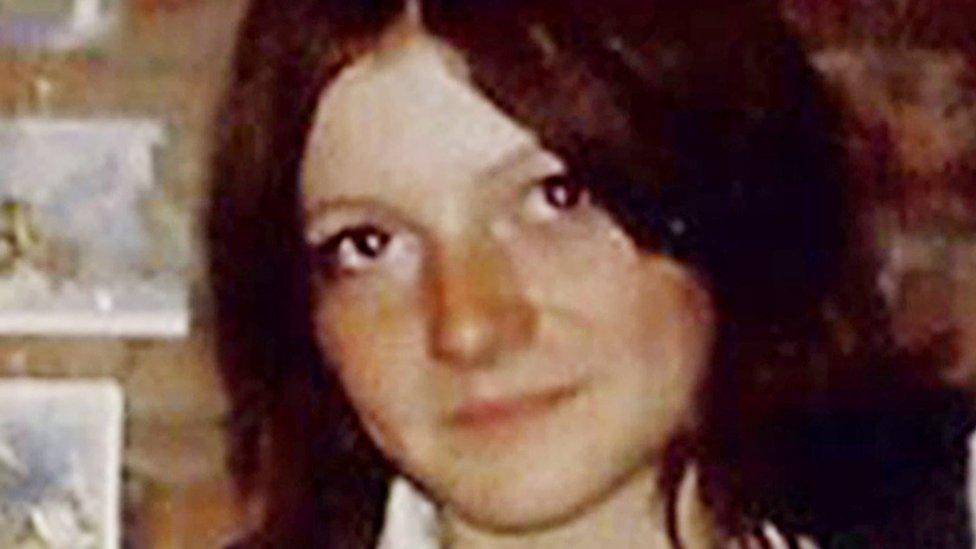
- Published28 February 2019
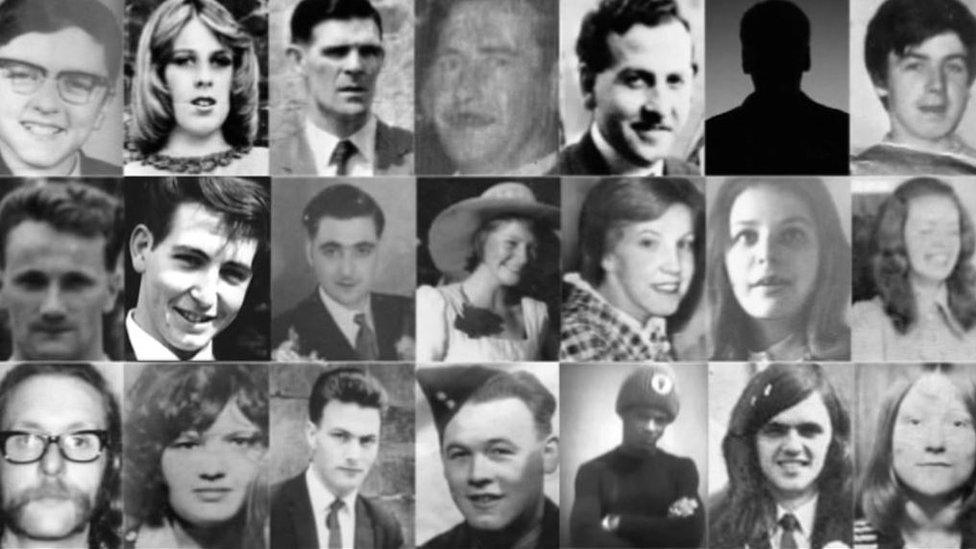
- Published26 February 2019
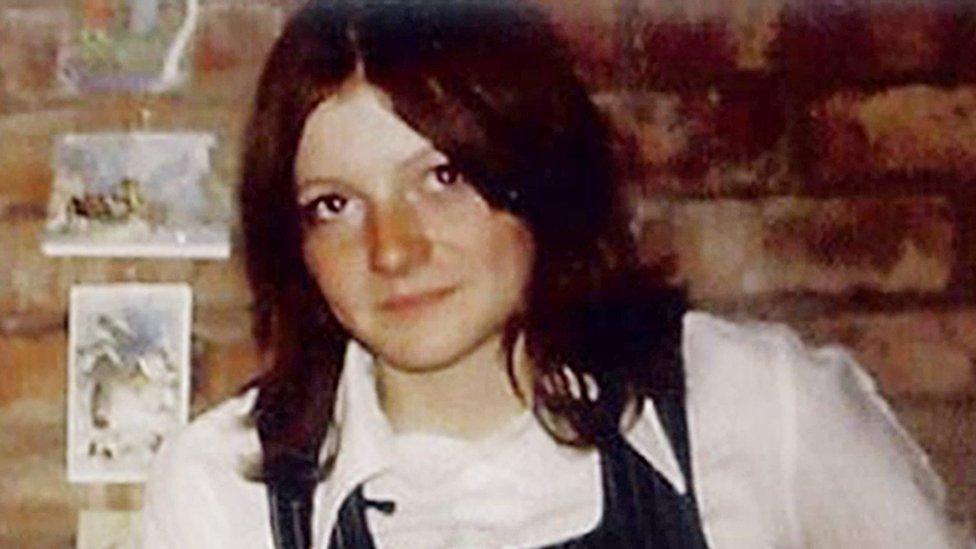
- Published25 February 2019
